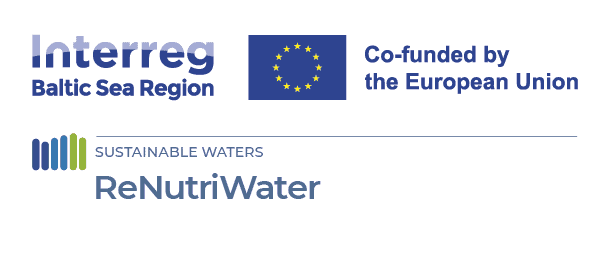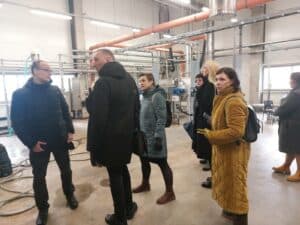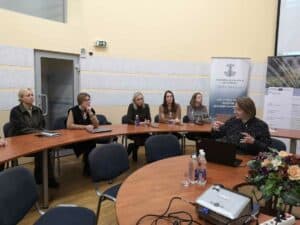
ReNutriWater target group meeting in Telsiai, Lithuania
16 February 2024
The Telšiai District Municipality kindly hosted the meeting in the Round Hall in exchange of knowledge and insights regarding project progress and future plans. The participants also enjoyed a visit to the wastewater treatment plant operated by UAB “Telšių vandenys” in Telšiai. It was informative for participants to see the process and machinery of wastewater treatment, such as technical water pumping stations, bioreactors and local sewage collection pumping stations.
Daiva Jon uškienė, Project Manager at SCCIC, introduced the progress in preparation for the project pilots, as well the challenges faced to get ready for accurate implementation. The SCCIC is specifically tasked with working with target groups within the project.
uškienė, Project Manager at SCCIC, introduced the progress in preparation for the project pilots, as well the challenges faced to get ready for accurate implementation. The SCCIC is specifically tasked with working with target groups within the project.
Renata Stankuvienė, Head of Telšiai Office of Šiauliai Board of Environmental Protection Department under the Ministry of Environment, was invited to give a presentation on the environmental requirements defined in Lithuanian legislation for the collection and discharge of wastewater to the environment and outlined the importance of the requirements for individual wastewater management and personal responsibility.
Stakeholders representing municipalities, environmental state control, business, education, and civil society, discussed the possibilities of different ways to use reclaimed water and the possible challenges. Participants wanted to know more about the safety of reclaimed water for both outdoor and domestic use. In particular, the need for detailed chemical analysis (not only nitrogen and phosphorus) and the potential risks of microbiological contamination were highlighted during discussions. Representatives of the State Service for Protected Territories pointed out that it is important not only to analyse the reclaimed water, but also to carry out studies on the condition of the water bodies and their tributaries into which the treated wastewater is usually discharged. The discussion extended to include the Protected Areas Product Label, a certification system established by the State Service for Protected Areas under the Lithuanian Ministry of the Environment, to help identify products as organic, authentic, and produced locally, without harm to the environment and wildlife, and beneficial to human health, which requires the sustainable and proper use of water.
Conclusions from the discussions saw unanimous agreement that there is a need for further studies, capacity building and raising awareness on water use and reuse among politicians and in civil society. A proposal to issue a recommendation for legislative amendment at the end of project was also raised.
The meeting was jointly organised by project partners; the Lithuanian Public Institution National Regions development agency and Šiauliai Chamber of Commerce, Industry and Crafts.





